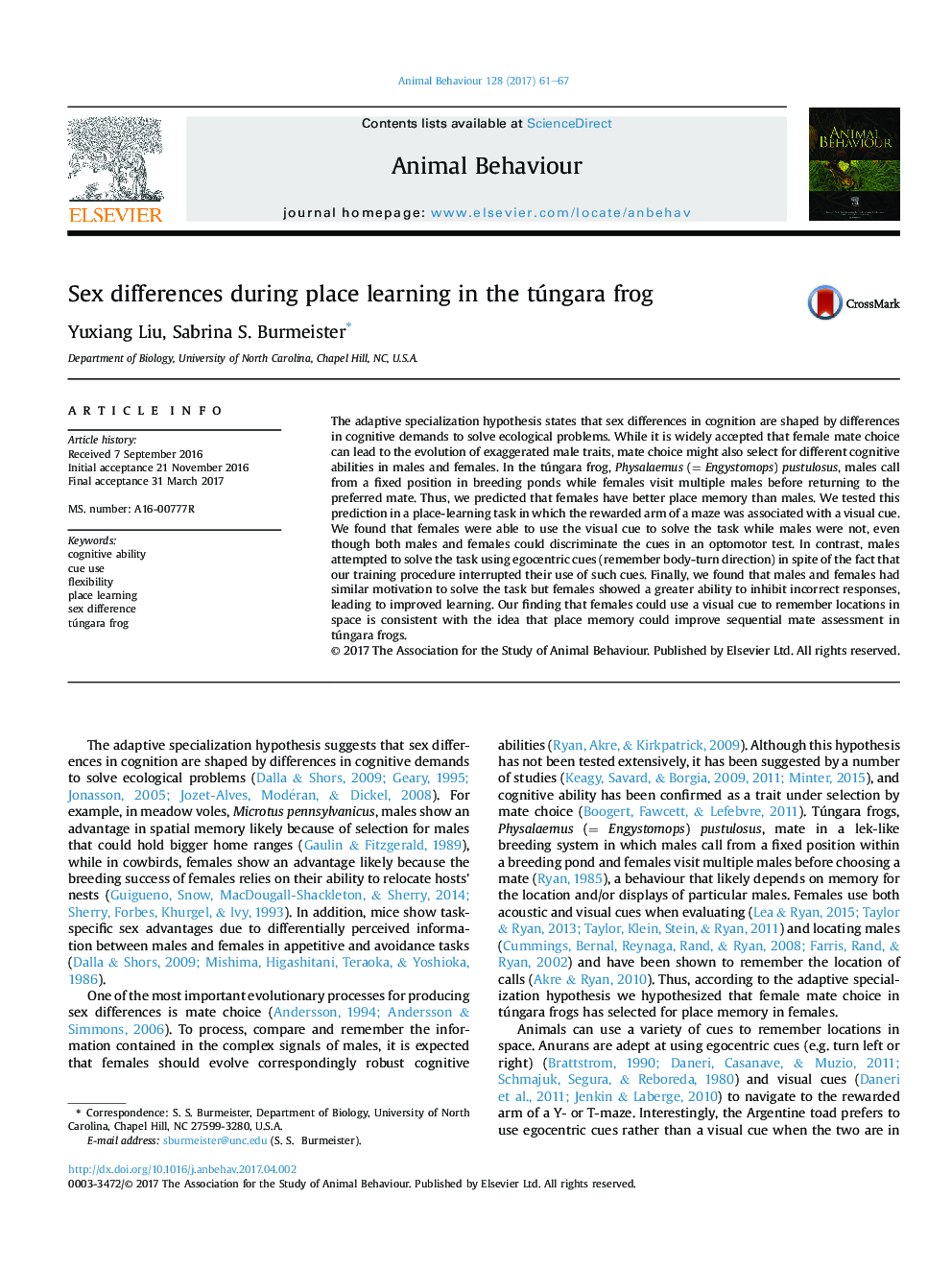| کد مقاله | کد نشریه | سال انتشار | مقاله انگلیسی | نسخه تمام متن |
|---|---|---|---|---|
| 5538457 | 1552200 | 2017 | 7 صفحه PDF | دانلود رایگان |
عنوان انگلیسی مقاله ISI
Sex differences during place learning in the túngara frog
دانلود مقاله + سفارش ترجمه
دانلود مقاله ISI انگلیسی
رایگان برای ایرانیان
کلمات کلیدی
موضوعات مرتبط
علوم زیستی و بیوفناوری
علوم کشاورزی و بیولوژیک
علوم دامی و جانورشناسی
پیش نمایش صفحه اول مقاله

چکیده انگلیسی
The adaptive specialization hypothesis states that sex differences in cognition are shaped by differences in cognitive demands to solve ecological problems. While it is widely accepted that female mate choice can lead to the evolution of exaggerated male traits, mate choice might also select for different cognitive abilities in males and females. In the túngara frog, Physalaemus (= Engystomops) pustulosus, males call from a fixed position in breeding ponds while females visit multiple males before returning to the preferred mate. Thus, we predicted that females have better place memory than males. We tested this prediction in a place-learning task in which the rewarded arm of a maze was associated with a visual cue. We found that females were able to use the visual cue to solve the task while males were not, even though both males and females could discriminate the cues in an optomotor test. In contrast, males attempted to solve the task using egocentric cues (remember body-turn direction) in spite of the fact that our training procedure interrupted their use of such cues. Finally, we found that males and females had similar motivation to solve the task but females showed a greater ability to inhibit incorrect responses, leading to improved learning. Our finding that females could use a visual cue to remember locations in space is consistent with the idea that place memory could improve sequential mate assessment in túngara frogs.
ناشر
Database: Elsevier - ScienceDirect (ساینس دایرکت)
Journal: Animal Behaviour - Volume 128, June 2017, Pages 61-67
Journal: Animal Behaviour - Volume 128, June 2017, Pages 61-67
نویسندگان
Yuxiang Liu, Sabrina S. Burmeister,